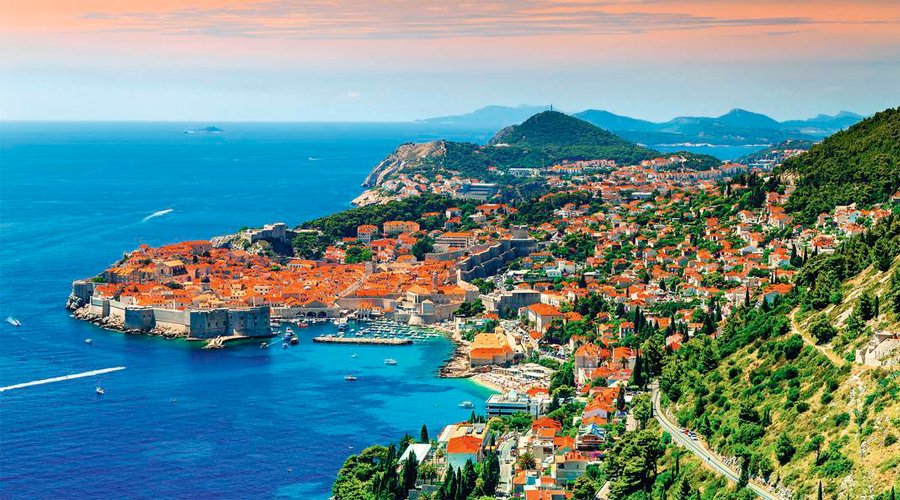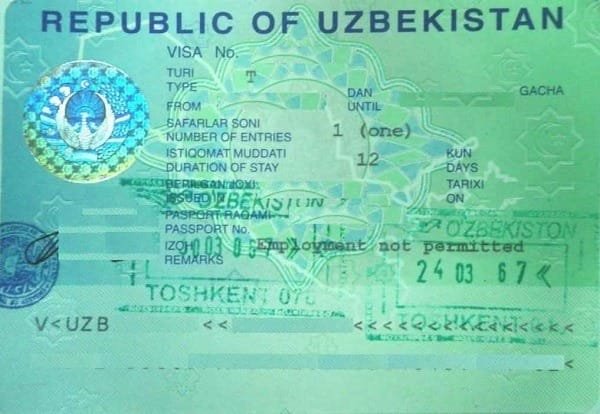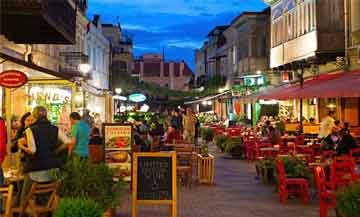Do you plan Croatia Holidays or Croatia Tour Packages; Croatia is an Eastern European country with long coastlines on the Adriatic Sea, enveloping more than thousand islands, crossed by the Dinaric Alps and dotted with castles. Its inland capital, Zagreb, is eminent by its medieval Gornji Grad (Upper Town) and diverse museums. The major coastal city Dubrovnik has massive 16th century walls enclose an Old Town with Gothic and renewal buildings.
Culture of Croatia
The culture of Croatia has roots in a long history: the Croatian people have locate the area for 14th century, but there are important remnants of the earlier periods still conserve in the country.
Because of its geographic position, Croatia represents a blend of four different cultural spheres. It has been a crossroad of impact of the western culture and the east – ever since division of the Western Roman Empire and the Byzantine Empire — as well as of the Mitteleuropa and the Mediterranean culture.
The Illyrian movement was the most forcible period of national cultural history, as the 19th – century period proved crucial in emancipation of the Croatian language and saw unprecedented developments in all fields of art and culture, giving rise to a number of historical figures. Most notably, Croatia has a place in the history of clothing as the origin of the cravat, a herald of the modern necktie.
History of Croatia
Croatia, at one time the Roman province of Pannonia, was settled in the 7th century by the Croats. They converted to Christianity between the 7th and 9th century and adopted the Roman alphabet under the country of Charlemagne. In 925, the Croats crushed by zantine and Frankish invaders and established their own independent kingdom, which reached its peak during the 11th century. A civil war ensued in 1089, which later led to the country being beat by the Hungarians in 1091. The signing of the Pacta Conventa by Croatian tribal chiefs and the Hungarian king in 1102 united the two nations politically under the Hungarian monarch, but Croatia retained its autonomy.
Following the defeat of the Hungarians by the Turks at the battle of Mohács in 1526, Croatia (along with Hungary) elected Austrian archduke Ferdinand of Hapsburg as their king. After the establishment of the Austro – Hungarian kingdom in 1867, Croatia became part of Hungary until the collapse of Austria – Hungary in 1918 following its defeat in World War I. On Oct. 29, 1918, Croatia blast its independence and joined in union with Montenegro, Serbia, and Slovenia to form the Kingdom of Serbs, Croats, and Slovenes. The name changed to Yugoslavia in 1929. When Germany raid Yugoslavia in 1941, Croatia became a Nazi puppet state.
Croatian Fascists, the Ustachi, crush countless Serbs and Jews during the war. After Germany was defeated in 1945, Croatia made into a republic of the newly altered comrade nation of Yugoslavia however, Croatian fanaticism persisted. After Yugoslavian leader Josip Broz Tito’s death in 1980, Croatia’s demands for independence increased in intensity.
In 1990, free elections were held, and the Communists were defeated by a nationalist party led by Franjo Tudjman. In June 1991, the Croatian parliament passed a declaration of independence from Yugoslavia. Six months of hard fighting with the Serbian – dominated Yugoslavian army followed, claiming thousands of lives and inflict mass loss.
Places to Visit in Croatia
1) Dubrovnik
2) Zagreb
3) Split
4) Zadar
5) Pula
6) Hvar
7) Plitvice National Lake Park
8) Krka National Park
9) Rijeka
10) Rovinj
11) Togir
Popular Nightclubs in Croatia
1) Aquarius
2) Papaya
3) Santos Beach Club
4) Hacienda
5) Club Veneranda
6) Culture Club Revelin
7) East West Beach club













